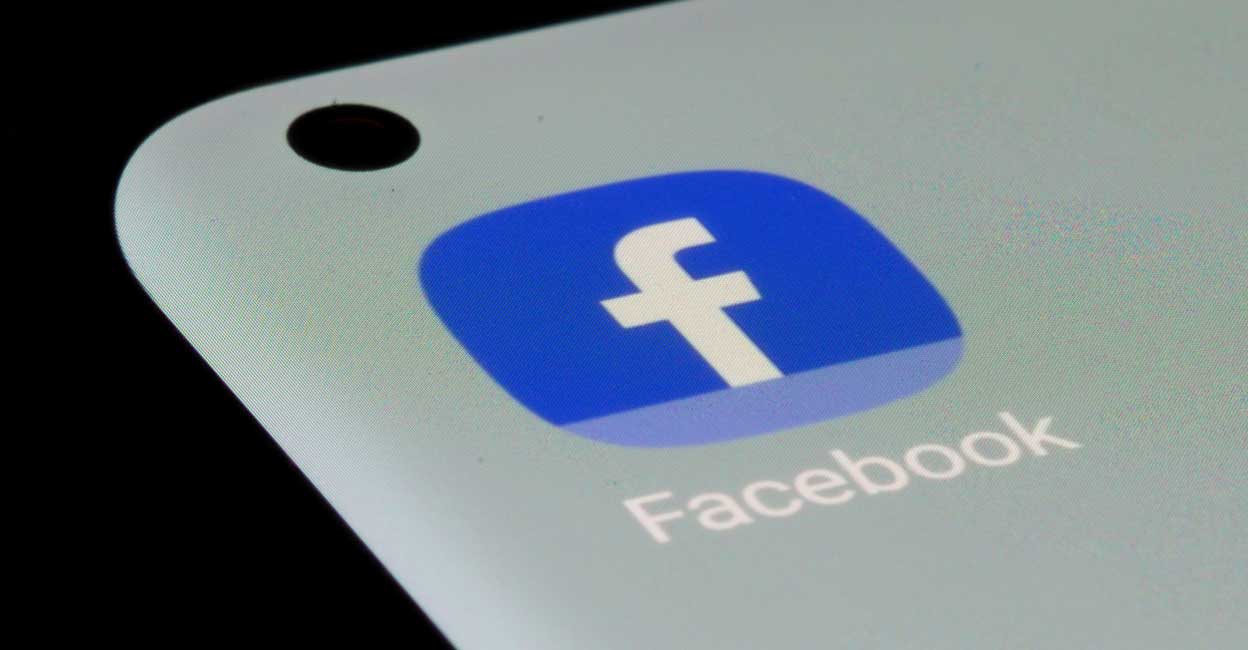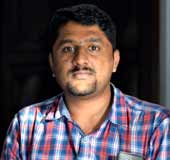Ousted Facebook data scientist lays bare the unethical practices of social media giant

Mail This Article
Sophie Zhang, a "low-level" data scientist with Facebook for two-and-a-half years, posted a final memo before she was fired from the company, citing "poor performance". The memo, known as "badge post" in Facebook's parlance, spoke about how the firm, rebranded as Meta* on Thursday, ignored fake political engagements on its social media platforms that helped in manipulating the future of at least 25 democracies, including India, across the world, similar to the Russian interference in the 2016 US presidential polls.
Zhang did not hold herself back in the traditional badge post, a final opportunity to address colleagues before leaving the firm. Her 7,800-word departure message laid bare Facebook's failure, or reluctance, in checking political manipulation campaigns, despite them being flagged.
"We simply didn't care enough to stop them," she wrote out of frustration, anger and helplessness in September 2020. "I know that I have blood on my hands by now."
While hitting the publish button, Zhang knew, out of experience, that Facebook would not like people to read her text. She created a password-protected website and published a copy of the memo, and shared the password with colleagues.
Facebook would have nothing of it. The tech giant reportedly forced the hosting service firm and domain registrar to take her website offline. The badge post, too, was taken down.
Unfazed, Zhang soldiered on. With the new dispensation at Capitol Hill, the whistleblower deposed against Facebook before the UK's Joint Parliamentary Committee on October 18, besides handing over several documents to law enforcers in the US.
In a Zoom interaction* with Malayala Manorama, she expressed hope that more whistleblowers, like Frances Haugen, who shared Facebook's internal documents with The Wall Street Journal and testified before the US Senate's Sub-committee on Consumer Protection, Product Safety and Data Security in October 2021, would come forward against the unethical practices of the firm.
The New York Times has recently reported the findings of a Facebook researcher, who created a new account posing as a person from Kerala to know the user experience in the State. The researcher found groups and pages replete with hate speeches, celebrations of violence and fake news. How do you view the findings?
I am not surprised. Facebook has several highly competent researchers. Their aim is to find, flag and solve issues pertaining to Facebook. The fact, however, is that the company ignores their findings.
What were your findings regarding India during your two-and-a-half years as a data scientist with Facebook?
My primary function was not research. I became a part of the fake engagement team that probed fake accounts and software bots during my free time. We noticed a plethora of politically backed fake accounts in India in 2019. There were five major networks: two each backing the Congress and BJP, and one promoting the Aam Aadmi Party. I asked my colleagues to pull down the fake networks, and they agreed. The mission abruptly stopped after two Congress networks, the pro-AAP network and one backing the BJP were taken down. The remaining one, supporting the BJP, was untouched. This network of accounts was run by a BJP MP. My repeated queries on why it was not taken down remained unanswered.

What prevented Facebook from taking down the network linked to the BJP MP?
I cannot make a decision on my own. It is not how Facebook works. My responsibility was to find and report such incidents (unethical practices). Others have to confirm my findings and act upon them. I tried my best, but in vain, to convince my colleagues.
Facebook issued contradictory statements regarding the networks. Initially, it said all the said Indian networks were removed when they were brought to the company's notice. The firm changed its stand after my interview to The Guardian, in which I countered its version. It issued a new explanation, saying a team unrelated to me, removed the networks after six months. Facebook's narratives have always been in a similar manner. It is surprising that no Indian media is asking questions in this regard.
Facebook India's policy head Ankhi Das resigned after the firm was embroiled in a hate speech controversy. The Wall Street Journal reported that she had decided against deleting some anti-Muslim posts by a BJP MP from Telangana, T Raja Singh, reportedly saying, "punishing violations by politicians from Mr Modi's party would damage the company's business prospects in the country." Are your findings related to the development that led to Das's exit?
No, this is different. Ankhi Das left Facebook in October 2020, whereas the incidents I have mentioned were from December 2019. I don't have direct knowledge about the incidents related to Ankhi. I had never directly interacted with Ankhi.

How did you get into loggerheads with Facebook?
Most companies won't tolerate personal criticism against their CEOs. Facebook is a company. I got engaged in studying fake accounts, which was outside my primary responsibility, in December 2019. There were complaints of me posting sensitive issues on the firm's internal online forum. Hence, I avoided identifying political parties in the forum. Instead, I posted as Party 1 for BJP, and Party 2 for Congress, etc.
Before long, the managers asked me to stop my research, saying it was not our priority and it was not doing any good to the company. I argued for initiating action against such networks, saying it was important to avoid tarnishing the company's image. They ignored me, and rated my performance as "poor." Facebook had avoided the performance rating system for its employees after COVID-19 forced all to work from home. It made me believe that the firm would not oust me. But I was fired in the first week of September 2020.
Several people have questioned Facebook's motive in firing me. I am not commenting on it.
Why did you refuse Facebook's $64,000 (approximately Rs 47 lakh) severance package?
Facebook decided to offer me $64,000 when I was fired. I refused the package since if I accepted it, I would have to sign a confidentiality agreement, which would have barred me from speaking against Facebook. Signing the severance and confidentiality agreement would have a larger bearing than what meets the eye. For instance, if I make a post on the recent Facebook outage, the company could initiate legal action against me. This is why I refused the package. I had offered to continue researching fake accounts for free after I was fired. Facebook did not accept the offer.
Facebook deleted the departure message you had posted on your last day with the firm. Does it mean you cannot express your views within the firm?
I posted a message on the firm's internal forum on my last day of work, which Facebook deleted. I knew it would be deleted and hence, posted the same message on my personal website, and shared its password with my colleagues. Facebook contacted the hosting service firm and domain registrar after a few days, demanding them to delete the said post. I won't blame the hosting service firm and domain registrar, because no firm would want to rub Facebook the wrong way. My website was removed, and I lost the domain address too. I later came to know that Facebook was forced to bring back my post after protests by my colleagues.

Did you know Frances Haugen while working at Facebook? Will there be more whistleblowers from the company?
No, I didn't know Haugen personally while I was with Facebook despite us having common friends. I am happy to see people like Haugen speaking out. I can't reply whether there will be more whistleblowers, since they are the rarest of the rare. They come out during extreme circumstances. I have seen US employees speaking out against Facebook US, and Indian employees questioning Facebook India. In fact, an Indian employee of Facebook had handed over the documents regarding the country policy head Ankhi Das to the Wall Street Journal. But I, though being a US citizen, brought to light issues in Azerbaijan and India, two countries I have not even visited. Asking whether there would be more whistleblowers is similar to querying whether there would be a terror strike in India next year. The answer could be both yes and no. Still, I expect to see more people like Haugen.
It has been reported that you have handed over certain Facebook-related documents to law enforcement agencies?
It is true. I have handed them over to certain agencies in the US. I can't provide details of those documents.

Do you have a message to the ordinary Facebook user?
Yes. Be highly cautious. Issues pertaining to fake accounts have not yet been addressed. It is like asking how many Inter-Services Intelligence (Pakistan's intelligence agency) operatives are in India. We don't have a specific answer, but it doesn't mean there are no ISI agents in India. They might have merged with the Indian population and operating clandestinely. Fake accounts are like such agents. It is high time that the public society put pressure against the wrong trends being followed by Facebook. Additionally, they should make their political leaders accountable. It is unfortunate that IT cells still function in Indian politics.
(*The interview over Zoom was conducted before Facebook CEO Mark Zuckerberg's October 28, 2021 announcement, rebranding the parent company as Meta, which sceptics felt was an attempt to divert the attention from Facebook Papers).


